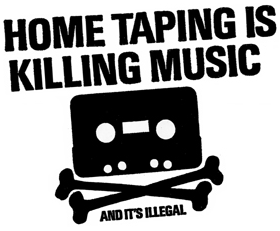 The latest AAA RPG is out today, filled with all the bloody combat, gray morality, and sexy women, or men, that you could want. That’s a no-brainer for a day one purchase, right?
The latest AAA RPG is out today, filled with all the bloody combat, gray morality, and sexy women, or men, that you could want. That’s a no-brainer for a day one purchase, right?
Here’s another question: Do you go ahead and put down $60 + tax of your hard-earned money on it, knowing that there is already DLC on PSN/XBLA, and that all this content will probably be available next year with the core game as the “Game of the Year Edition”? Do you pay $60 for a game that by all accounts plays like it’s still in beta-testing in hopes that the designers will release patches to make it run correctly in the next few weeks?
One of the defining features of the seventh generation of consoles has been Internet access as a standard feature. While online capability for game systems has existed since the early 1980’s, this is the first time we’ve had the infrastructure that enables everyone to be online, in the form of Xbox Live, PSN, the Nintendo Wi-Fi Connection, or Steam. On the plus side, it has made gaming a truly social pastime. We can get onto Xbox Live, join a party with our friends, and rock it in everything from CoD: Black Ops to Bomberman. It has also brought us downloadable budget games that would otherwise have never been green-lighted by the platform holders or would have never been made due to the costs of publishing. The Internet has given us more freedom than ever before in our entertainment choices. And that’s a good thing.
Unfortunately, not everything is quite so rosy. Online-capable consoles have brought the ills of post-release patching, DLC, and DRM into our living rooms. Through the Internet, a publisher now has the uncontested power to control how much access you have to the games you buy, whether or not you have that access in the first place, and how you share your gaming experiences with your friends and family. Much of this access is determined by how much something can be “monetized” by the provider. Because consoles are now Internet-enabled, publishers looking to meet key deadlines like Christmas can also push a game out the door before it has been thoroughly tested or even completed, with the idea that any problems that crop up or even missing game modes can be addressed by the release of an online patch after the game goes to retail. The Internet has given content providers more power and control than at any point in the past.
Let’s take a look at some of the buzzwords of contemporary gaming.
DRM

Digital Rights Management (DRM) is not a new concept. This concept was codified in the Digital Millenium Copyright Act of 1996, at a time when the “information superhighway” was being rolled out for the general public. Prior to 1996, it was simply known as copy protection, exemplified with famous slogans like “Don’t Copy That Floppy (disk)” and “Home Taping is Killing Music.”
Game production is increasingly expensive, and it’s understandable that the publisher and developers want a return on their investment. When a game fails to perform at retail, designers are laid off, a promising franchise dies, and in the worst-case scenario, the development studio may get shut down completely. Another result is that publishers are encouraged to stick with sequels to proven franchises like Call of Duty or Assassin’s Creed instead of introducing new properties. Publishers will often lay the blame for underperforming games on piracy, and more and more frequently, on the secondhand video game market. While it has always been commonplace for gamers to sell, buy, loan, and rent games, it is only within the past two years that publishers have raised the alarm over the used game market. Nevertheless, in the eyes of a publisher, every pirated or secondhand copy is a lost sale, and they seem particularly galled by used game sales, since the money that changes hands on a used sale is strictly between the seller and the buyer.
In order to counteract piracy and the used game market, publishers have long tried different methods. In the 1980s, it was common for publishers to implement copy protection that required the user to type in a piece of information from the game’s manual or packaging, the information being printed on paper that would show up as solid black on the Xerox machines of that time. As technology advanced, so did copy protection. Today, DRM often includes giving a limited number of installs of a game and requiring the game to periodically validate itself online with the publisher’s main server. While PC games have sported DRM, such as the notorious SecuROM, for years, these practices have now spread to consoles as well. Specifically for consoles, publishers have tried offering DLC with new copies as a positive incentive. EA and THQ have also experimented with a more punitive form of DRM, the online pass, where the buyer of a used copy of a game is required to pay an additional fee if he or she wishes to play a game online.
DLC
DLC, or downloadable content, is a more controversial issue, since unlike with DRM, there are potential benefits to both the publisher and the end user. DLC takes different forms depending on the game and genre. For FPS’s, it usually comes in the form of map packs for the multiplayer modes. Fighting games usually relegate it to extra characters or costumes for existing characters which do not impact the actual game. In RPGs, it can take the form of side quests as well as optional weapons or armor. Sometimes the DLC is fairly superficial, but other times, it is quite extensive, as with Fallout 3’s Broken Steel pack, which allowed continued play after the core game’s rather abrupt ending and upped the level cap from 20 to 30. In addition, there are many free-to-play (FTP) games whose revenue largely comes from DLC, known as microtransactions. This model has long been popular in South Korea and China. In the United States and Japan, it has been adopted by a number of MMORPGs who are not able to compete with the popularity of World of Warcraft as subscription games. It is also the revenue model of choice for the new breed of “social” games made for platforms like Flash, Facebook, iOS, and Android.
Publishers are increasingly offering controversial “day one” DLC as bonuses for purchases of new copies or for preorders, and while that is seen as a more positive incentive to buy new than an online pass, there are protests that gamers are having content intentionally withheld from the game for the purposes of milking it. The issue is even thornier when it is discovered that the DLC is nothing more than a code that unlocks content already printed on the data layer of the disc itself, which is considered to be the property of the purchaser under the First Sale Doctrine of the Copyright Act of 1976.
Publishers claim that DLC is a way to add value for customers, particularly buyers of new copies, and certainly it is a way for them to receive additional revenue from a copy of a game that in the past would have been completely lost to them once it was sold. From gamers, the opinions are mixed. While there are those who decry DLC as “nickel-and-diming,” there are those who enjoy the ability to continue the story of a favorite game beyond the main quest. There is also the question of paying real money for virtual goods, as some “free-to-play” games can cost money beyond a one-time $50-60 purchase for a retail game. In one extreme case, parents have reported getting bills totalling hundreds of dollars for microtransactions from Smurf Village, a popular iOS FTP farming sim, a controversy that both Apple and the publisher, Capcom, have worked to address. In this case there is the issue of the ethics of marketing seemingly cheap, tempting DLC to kids, who are more impulsive than adults on average, as well as parental supervision and control of their kids’ online activities.
Bugs
As anyone who’s played a Lionhead, Bethesda or BioWare RPG lately can attest, bugs in retail games are becoming more and more noticeable. Bugs can range from graphical errors like broken textures, missing limbs, and floating items, to features of the game that don’t work correctly. In some cases, a bug can cause the game to freeze up, requiring a press of the power button to reset the game and losing all the progress you’ve made.
Now, there is no such thing as “perfect” code. Every piece of software has at least some degree of imperfection. In this day and age, a game has billions and billions of lines of code, and it is impossible to nail down every imperfection. It’s also been argued that the HD generation games are more complex than ever in terms of graphics and gameplay. The argument goes that in an open-world environment like Fallout, it’s impossible to account for every possible variable a gamer can throw at a game’s graphics or physics engine.
However, some games have been buggy and even unfinished, almost to the point of feeling like a $60 beta test. A glitch in the system because a programmer didn’t anticipate a gamer doing such-and-such is one thing, but what about random freezes, screen tearing, floating limbs? If these things are encountered routinely by customers, shouldn’t the game’s testing team have caught them? It’s also not like working on a PC environment, where a game has to run on a variety of different hardware and software configurations. A 360 is a 360 is a 360, or that’s the way it’s supposed to be.
With consoles routinely Internet-capable, a lot of developers seem to be relying heavily on post-release patching to try to fix problems that come up after release, especially when the publisher is setting an absolute deadline for the game to be released, come hell or high water. However, patches are not always timely. Furthermore, there’s also the question of what happens to a game once all the servers are shut off.
The extreme version of these bugs actually comes in the form of hardware errors, like the 360’s RROD and E74 errors and the infamous “ApocalyPS3” that happened on March 1 of last year. These oversights on the part of the platform holders result in inconvenience and expenses for customers, and millions of dollars in expenses for the platform holders to placate their customer base and avoid tarnishing the image of the console for potential new customers.
So, are bugs the inevitable price of the kind of complex graphics and game mechanics today’s gamers demand? Is it right for publishers to expect consumers to spend more money on games that seem unfinished?
The Wallet Vote
Ultimately, the design choices listed above are dictated by what the market will bear. While angry gamers may protest online passes or DLC vocally on Internet forums, they are preaching to the choir. Unless an unpopular DRM scheme can be proven to negatively impact the sales of a game that uses it, as happened with Spore, publishers will assume their customers are OK with it. As long as people are willing to pay $15 for multiplayer map packs, publishers will keep releasing them… and perhaps test the waters with incremental price increases. It is up to everyone to vote with their wallets as to what they do or don’t want from their games.
And if we are okay with online passes and day-one DLC, those things have gotten their foot in the door. What will we be asked to do next?



Y’know me. I agree with everything here Andrew. I believe there is a “right way” to do dlc but when given the option companies will opt the path of least resistance and the most money. Aka putting in minimal effort for maximum profit.
It makes me sort of mad when gamers “defend” this sort of thing. Maybe they’re simply thinking about the “good dlc” out there which is actually rarer than “crap dlc”.
Yeah, I find it kind of baffling myself when gamers attack other gamers for opposing DLC/DRM/buggy games. I guess I’m just a little too used to the “customer is always right” mindset, but I really cannot see why gamers would bash those who don’t want to pay extra.
I buy most of my games new, and I don’t pirate. That’s really all that can be expected of anyone. And as for the used game market… the publisher has already been paid for the game by the first owner. No money lost there.